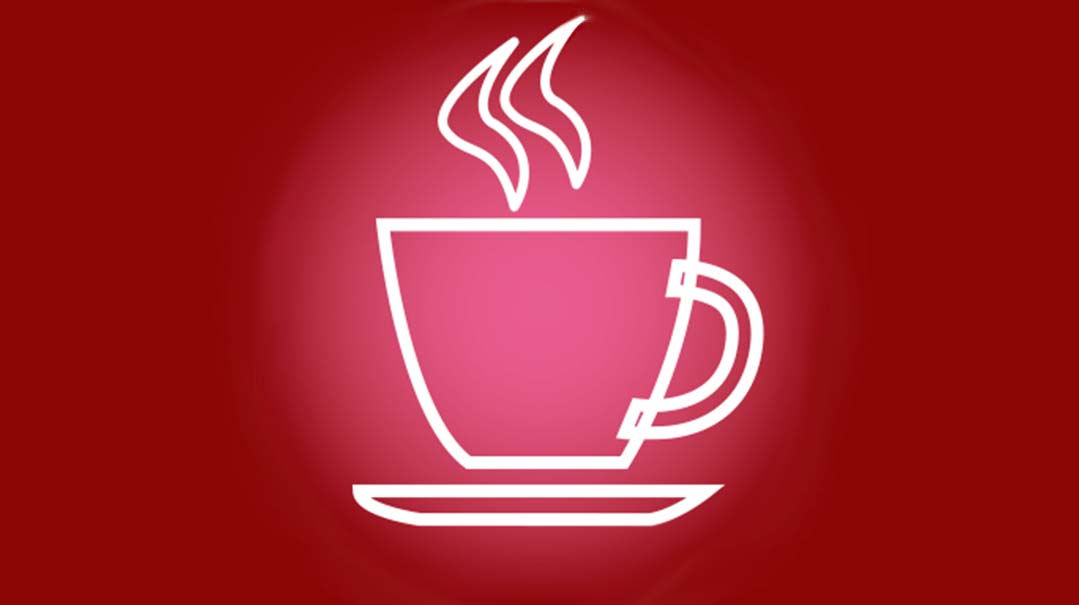Should I Enable My Husband’s Purim Drinking?
| March 2, 2016
M
y husband loves Purim — of course he does. He’s borderline addicted to alcohol, a constant source of tension in our home, and loves a day when he can imbibe as much as he wants and call it a mitzvah. He occasionally overdrinks at kiddushim in shul, comes home, and spends the rest of the day fluctuating between drunken hyperness and long naps. No amount of begging or pleading on my part will get him to stop. I know this is an image he works to upkeep, and he feels that if he lets up on the drinking he’ll look less macho with his buddies.
When he’s sober, he’s a great, normal husband, holds down a good job and morning and night seder, helps out at home, everything a wife can ask for. But when he’s drunk, he’s unrecognizable.
Every Purim, things come to a head. When we were first married, we got the “chazakah” of hosting the Purim seudah for my husband’s friends and their families. I spend weeks cooking the perfect seudah. My husband, for his part, goes to the liquor store and buys cases of alcohol — after all, what’s a Purim seudah without good drink? Our seudah is the neighborhood highlight, and the partying and music last well into the night. In some ways, I don’t mind it, because the company and serving distract me from noticing how my husband is behaving — drinking nonstop, carrying on, and embarrassing our family. But every single year since we got married nine years ago, after the Purim seudah, my husband has had frightening drunken outbursts, to the point that I’ve feared for my and my children’s safety. He’s so drunk that the next day he doesn’t remember what happened.
I’m very torn — on the one hand, I enjoy hosting, and I also enjoy the fact that we’ve earned a reputation for having the most “happening” seudah around. I’m also aware that it’s very important for my husband’s social standing. On the other hand, I pay a very high price for it, to the point that I’m dreading Purim because of what I know will come after. It’s been too many years for me to convince myself that it was a one-time slipup. If I refuse to host, my husband will be upset and think I’m being controlling. But I also don’t know how to tell him my concerns in a way that will be heard, especially because there’s a mitzvah to drink on Purim.
Rabbi Ilan Feldman is the rav of Congregation Beth Jacob in Atlanta, Georgia. The families who are part of his vibrant, dynamic community regularly turn to Rabbi Feldman to receive his wise counsel on both halachic and interpersonal issues.
Y
ou are describing a problem that infects the frum community in ever greater proportions: the abuse of alcohol in typical, Yiddishe life-cycle settings.
Alcohol is easily available, and it’s socially acceptable to drink more than just a l’chayim. As a community, we hide behind the notion that, since it’s a kiddush or a shalom zachar or a simchah or a friendly l’chayim, it is almost a mitzvah. People leave weddings, vorts, shalom zachars, intoxicated not with joy but with alcohol, and the rest of us are supposed to act as if it’s normative behavior for frum people.
While there’s a chiyuv to drink on Purim ad d’lo yada, Chazal were speaking to people who used alcohol for holy purposes, not to people who were used by alcohol. When commodities like wine are used by people to elevate themselves, they have kedushah. When the use of those commodities degrades people, there’s no mitzvah value at all.
You say when your husband doesn’t drink, he is a normal husband, “everything a wife can ask for.” Except he is not a husband who can guarantee he will be an emotionally predictable, solid role model, who will give you a reliable sense of security and safety. He has one thing that’s more important to him than making that commitment: alcohol, the freedom to drink it when he wants, and freedom from being held accountable for the impact and consequences of his drinking. This is not to say he is evil; he is merely destructive and irresponsible.
It’s said that addiction is a disease of denial. This refers to more than the denial of the one doing the drinking or drugging. It means that, in order for the abuser to be able to continue to harm himself and others, a degree of denial regarding how disturbing his behavior has become is required from those around him too. Your husband is not the only one suffering from denial. It’s typical that in a case of an individual abusing alcohol, the entire family system unintentionally supports and maintains the equilibrium needed to maintain the abuse.
As you indicated, Purim is not the entire problem, just the time when the issue comes to a head. In your case, you don’t realize the level of complicity you have in your husband’s drinking. You know he’s going to embarrass himself and you, but you find the gains of hosting the seudah more important than refusing to tolerate the spectacle he creates.
Your husband is counting on your continued complicity. He knows you both have surrendered a rigid allegiance to reality and truth, in favor of something more convenient or exciting. In his case, it’s the “fun” of drinking; in your case, it is the reputation of hosting the “happening” seudah.
Something more important than reality has supplanted the truth about your seudah: it is not an elevating experience for anyone, it is a mockery of what Purim can be, it’s an example you don’t want young people, including your children, to see or emulate. Your Purim seudah is not a place of simchas Purim, it’s a bash that uses Purim as an excuse for drunkenness.
The system supporting your status quo depends on you going along with it, refusing to bring up any concerns to him, backing down when he gets angry, living in embarrassment, acting as if you’re enjoying Purim when in fact you’re dreading what might happen, ignoring the fact that this has nothing to do with simchas Purim or any religious enlightenment or inspiration.
I can hear you (and other readers) asking, “But what can be done? Am I supposed to embarrass him and myself by refusing to host the seudah this year? What about all year long — can I control his regular habit of getting drunk?”
Before we rush to describe “three easy and painless steps to reining in your alcohol abuser on Purim,” there is a point to be made. The question isn’t “what to do,” it’s “what kind of person will be doing it.” No approach will make a difference until you become fiercely determined to live with truth, and to stand for a real value in your life, something other than approval of others, popularity, or convenience.
When you have had enough of compromising your values in favor of approval, when you declare your bottom line for yourself, when you become determined to respect yourself, when you decide your home will stand for something, you will know what to do. Do you stand for a trusting, loving, mutually respectful relationship with your husband? Do you stand for a Purim that reflects joy, friendship, and spiritual elevation? Do you stand for two adults in your family modeling mature behavior for your (and others’) children?
The key to being able to effect change here is not to be intolerant or angry or disgusted with what’s happening. It’s to ask yourself what you stand for without compromise. When you’re clear about that, you will be clear about your vision, and the actions will flow naturally. But the person who wrote what you wrote is not there yet.
Your household is desperately awaiting at least one adult to act as a stalwart, immovable, and courageous embodiment of principle. Such an attitude is what brought us Purim in the first place. I daven for the day your seudah will truly be a “happening” place, and Purim joy will be available in abundance.
Rabbi Dovid Hochberg LCSW-C, is the director of the Maryland Counseling Network and a sought-after psychotherapist. He has published and lectured extensively on mental health, marriage, parenting and relationship issues, and is the author of The Jewish Teen’s Survival Guide (Menucha Publishers).
I
’m going to tell you something you already know but are having a very difficult time accepting. It will be painful to hear, but I also believe that on some level, you’ll be relieved to hear someone spell it out.
Your husband has a serious problem that both of you don’t want to face.
You used an expression that’s very telling. You described him as “borderline addicted to alcohol.” It seems that you wanted to say addicted but stopped short of actually using those words. What would you consider crossing the line into addiction? Will the answer always lie a little beyond whatever behaviors your husband is currently engaging in, so you can avoid saying addicted?
There are three aspects I’d like to address, which will lead to one conclusion. Let’s deal first with the aspect of whether your husband is an alcoholic. If no problems or issues arise from his use of alcohol, and you enjoy what he’s like when he drinks, there wouldn’t be any question.
However, you described his drinking and subsequent behaviors as “fluctuating between drunken hyperness and long naps” and it’s a constant source of tension in your home. You explained how every Purim for the last nine years, he has “frightening drunken outbursts,” to the point that you’ve feared for your safety and the safety of your children. You mentioned how he carries on, embarrasses your family, and gets so drunk that he doesn’t remember what happened. He will not stop, no matter how much you’ve pleaded and begged.
With all that you described, does it really matter whether or not he can officially be diagnosed as an alcoholic? What matters is that he’s drinking in a manner that’s causing significant problems in his life and the lives of those around him. That alone is more than enough reason for you to seek help with this.
Yet something is stopping you. You don’t want to face this any more than he does.
This leads us to the second aspect. Everything in life has a price. We “pay” for things in money, time, resources, emotion, energy, etc. We may “pay” for our jobs (and subsequent paychecks) by having to deal with difficult coworkers. We may “pay” for having someone drive car pool for us by having to talk with them on the phone for a long time when it’s inconvenient for us.
There’s a price you pay to have a husband who’s great, holds down a good job, learns, and helps out at home. The price is having a husband who is acting the way you described… and you’re willing to pay the price. But sometimes the price feels a little too expensive, and those are the times you question if it’s worth the price. However, you have many wonderful things in your marriage and don’t want to rock the boat.
Which brings us to the third aspect: There are several things you tell yourself that make it easier for you to pay the price, even when it feels too high. But please don’t confuse the mitzvah of drinking on Purim with frightening drunken outbursts that make you afraid for your safety. Don’t make the mistake of thinking that distracting yourself during the Purim seudah to dull the pain solves the problem. Don’t use your enjoyment of hosting to mask this serious issue. Please try to find the courage to face this issue and not avoid it any longer.
These three aspects lead to one conclusion: It’s critical that you seek out help for your sake, your children’s sake, and your husband’s sake. The type of help you seek may vary on your journey, but the most important thing is that you start facing this issue somehow, someway. Start anywhere you’re comfortable finding help, whether it’s your rav, therapist, Al-Anon meeting, etc.
But please start somewhere.
Let me conclude with one of the slogans from Al-Anon, an organization of support groups for the family and friends of alcoholics and other addicts: “You didn’t cause it, you can’t control it, and you can’t cure it.”
And this is the best perspective to have as you begin seeking help.
May Hashem grant you the strength to deal with this very difficult challenge, help you find people in your life to guide you, and bring you and your husband to a place of peace, menuchas hanefesh, and growth.
Mrs. Risa Grajower, MSW, CASAC is certified in group therapy and is a credentialed alcohol and substance abuse counselor. She is the director of the English-speaking program at Mifgashim, Retorno’s outpatient division for addiction, and has a private psychotherapy practice in Ramat Beit Shemesh.
T
he fact that you’re asking this question now means something inside has shifted, and you’re taking the first step in acknowledging that the current Purim seudah is no longer working for you or your family. I commend you for reaching out for help.
The first point I’d like to address is the issue of safety. If the seudah leaves your husband so drunk that he has violent outbursts leaving you fearing for your safety, there’s a serious problem. And yet you seem unable to set clear boundaries for you and your children. On Purim, a lot of men “get away” with drinking “too much,” but what’s going on in your home is crossing a red line.
You should never be in a position in which you fear for the safety of your family. True, you cannot stop your husband from drinking and getting drunk, but you do not need to host the platform for that behavior to take place. By hosting the seudah, you’re enabling your husband to continue his unhealthy drinking. Safety has to come first. (On that note, the same is true even if you choose not to host the seudah and go with him elsewhere to celebrate. You cannot control how much he drinks, but you can decide in advance which behaviors you won’t tolerate, and how you’ll respond to them.)
You’ve labeled your husband as a “borderline alcoholic.” I’m curious where that diagnosis came from. Since drinking is common in many cultures and the effects vary so widely from person to person, it’s not always easy to figure out when one crosses from social drinking into problem drinking. The bottom line is how alcohol affects the individual. If one’s drinking is causing problems in his/her life or those around them, then a drinking problem exists.
You’re “begging and pleading” that this stop, but your husband keeps going. He’s demonstrating that, in some ways, alcohol is more important than you. Does this happen in other areas of your marriage too, or only when it’s connected to drinking? Does your husband take your other concerns seriously?
You say that when your husband is sober, he’s a great “normal” husband. Be aware that “normal” is a realistic expectation. From what you describe, your situation seems unpredictable. Meaning, if when your husband is “drunk he becomes unrecognizable” then it seems that you cannot trust or rely on him, therefore creating an unpredictable environment in your home. That doesn’t sound so normal.
In order to get a clearer picture of your situation, I’d recommend a professional assessment. It’s important that this assessment be done with a therapist with experience in addiction. If your husband is reluctant to see someone, a good place to start is an online quiz (one can be found on Retorno’s website).
You go to great lengths to make a lavish meal and work hard hosting, trying to ensure your husband’s social standing. But the price you’re paying for hosting the “neighborhood highlight seudah” is that you’re sacrificing your physical and emotional wellbeing, as well as that of your children. Is this the only way that your husband can earn friends? Is it worth it to have the most “happening” seudah around at the expense of your safety and the safety and security of your children?
It’s not your job to fulfill everyone’s expectations of you; you need to figure out your own expectations, and take responsibility for your behavior. Instead of begging and pleading, tell your husband how you feel. For example, “I’m afraid of you when you drink, I’m afraid for the children’s safety, I feel defeated, abandoned, etc.”
With that, realize that you can think of the best way to get your message across, but you cannot control whether or not he hears you. Regardless, you can still set clear boundaries. This is not something you can do alone; you need outside support to put up these boundaries and stick to them. There are codependency programs that address these needs, and a therapist who works in conjunction with these groups might also be helpful.
In our work treating individuals struggling with codependency, we see that when people stop focusing only on what’s good for their spouse, they begin to think for themselves and become responsible for themselves as well. Furthermore, people (especially women) can be taught how to recognize which actions are truly “helpful” and which ones enable a spouse to continue self-destructive behavior.
To address the fact that drinking on Purim is a mitzvah, I suggest you speak to a rav, explain your situation, and ask if indeed it is a mitzvah for your husband to drink on Purim. There are many rabbinic opinions today that hold the contrary, depending on the individual’s personal tolerance for alcohol.
I wish you a truly happy Purim.
(Originally featured in Family First, Issue 482)
Oops! We could not locate your form.











